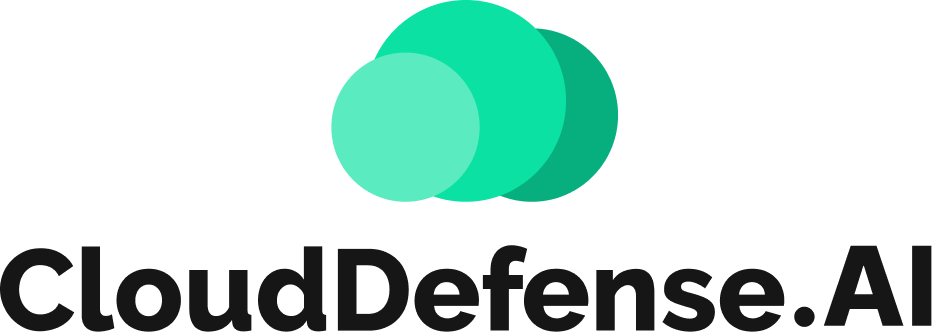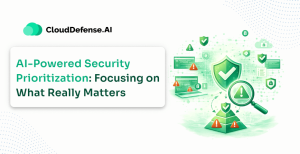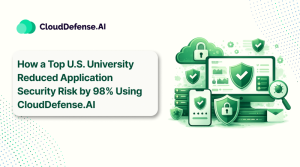If your business is known to handle consumer data, you must ensure readiness for a CCPA Audit. The California Consumer Privacy Act is considered one of the world’s strictest data security standards, and complying might require serious dedication.
CCPA Compliance doesn’t require businesses operating outside of California to comply with it. However, suppose you aim to scale your business in the future. In that case, you must consider California, the economic capital of North America, as a business location. This makes CCPA compliance a necessity for you.
A quick read through this article will empower you to expedite your audit process with a CCPA compliance checklist.
What is a CCPA?
The California Consumer Privacy Act (CCPA) is a transformative privacy regulation that empowers California residents with unprecedented control over their personal information.
Enacted in June 2018 and effective from January 2020, it was introduced to address growing concerns over the misuse of sensitive data by organizations. The CCPA requires businesses to handle consumer data responsibly, ensuring transparency and accountability.
The CCPA Compliance Grants Consumers the Following Rights:
- The Right to Know: Consumers can request details about the categories of personal information collected, the purpose of collection, and third parties with whom the data is shared.
- The Right to Delete: Consumers can request the deletion of their personal information, subject to certain exceptions (e.g., legal obligations).
- The Right to Opt-Out: Consumers can opt out of the sale of their personal information, preventing businesses from monetizing their data.
- The Right to Non-Discrimination: Businesses cannot deny services, charge higher prices, or offer inferior service to consumers exercising their CCPA rights.
- The Right to Access: Consumers can request a copy of their personal information collected over the past 12 months.
- The Right to Be Notified: Businesses must provide clear, conspicuous notices about their data collection, sharing practices, and purposes.
Adhering to CCPA requires strict data protection measures. Businesses that are required to be CCPA compliant must secure personal information to thwart data breaches, unauthorized access, and data theft. The law includes diverse cybersecurity practices to safeguard consumer data and ensure CCPA compliance.
Who Needs to Worry about the CCPA Compliance Checklist?
The California Consumer Privacy Act (CCPA) is a significant regulation for businesses that interact with California residents. Unlike GDPR, which applies globally to entities handling EU citizens’ data, CCPA focuses on businesses operating in California under specific conditions. Understanding whether your organization falls within its scope is crucial for maintaining compliance and avoiding penalties.
Criteria for CCPA Applicability
Businesses need to comply with CCPA if they meet one or more of the following thresholds:
- Annual Gross Revenue: Exceeds $25 million.
- Data Handling Volume: Processes the personal data of 50,000 or more consumers, households, or devices for commercial purposes annually.
- Revenue Dependency on Data Sales: Derives 50% or more of annual revenue from selling personal data.
What Constitutes Personal Information?
The CCPA Compliance defines personal information broadly, covering details like:
- Social Security numbers.
- Names, email addresses, and phone numbers.
- Internet browsing habits or device-specific identifiers.
Why Do You Need a Compliance Checklist?
Organizations meeting these criteria must:
- Inform consumers about the types of personal data collected and the purposes for which it will be used.
- Honor consumer rights, such as access requests, data deletion, and the right to opt out of data sales.
- Implement robust security measures to protect personal data.
If your business meets any of these conditions, preparing a comprehensive CCPA compliance checklist is essential to manage legal obligations and uphold consumer trust.
Benefits of CCPA Compliance Audit
In 2022, the Identity Theft Resource Center reported a staggering 1,802 data breaches, exposing over 422 million individuals. Such incidents erode consumer trust in companies’ ability to safeguard their data. CCPA compliance play a crucial role in addressing these challenges and restoring confidence in companies handling data.
Other than the significant benefit of regaining consumer trust, CCPA has a ton of other benefits outlined below:
- Audits Ensure Strong Data Protection Measures: Audits help you identify and address vulnerabilities in data protection measures, improving overall security and reducing the risk of data breaches or unauthorized access.
- More Efficient Data Handling Process: By noting all your weaknesses, you can identify areas for process improvement related to data collection, management, and deletion, leading to more efficient and CCPA-compliant data-handling practices.
- Bolsters Company Reputation: CCPA Compliance assists you in boosting the company’s reputation by demonstrating its dedication to privacy and responsible data management of its clients. This is critical in today’s competitive business environment, as customers prefer companies that are serious about the privacy and confidentiality of their data.
- Avoiding Non-compliance with CCPA: Businesses operating in California that are non-compliant with CCPA are required to pay hefty fines and penalties. CCPA audits help ensure the company meets the specified CCPA audit requirements.
The California Consumer Privacy Act (CCPA) empowers consumers to control their personal data like never before. Businesses must respect these rights and ensure they are clearly communicated to consumers. Here’s an overview of the essential rights granted under CCPA and what they mean for both consumers and businesses.
The Ultimate CCPA Compliance Checklist: 10 Essential Steps for Businesses
Achieving compliance with the California Consumer Privacy Act (CCPA) requires careful planning and implementation of privacy and data protection measures. This checklist breaks down the essentials to help businesses meet their CCPA obligations effectively. Follow each step closely to safeguard consumer rights, enhance trust, and avoid penalties.
Determine if Your Business Falls Under CCPA Jurisdiction
Before diving into compliance measures, confirm whether CCPA Compliance applies to your business. The law targets specific types of organizations, such as:
- For-profit businesses with annual gross revenues exceeding $25 million.
- Businesses that handle the personal data of 50,000 or more California residents, households, or devices annually.
- Companies deriving over 50% of their annual revenue from selling personal information.
CCPA Compliance does not apply to government agencies, non-profits, or businesses already regulated by federal privacy laws such as HIPAA. If your business meets any of these criteria, compliance is mandatory. However, adopting CCPA standards, even if not required, can enhance corporate social responsibility and future-proof your operations.
Build an Inventory of Personal Information
A comprehensive inventory of all personal data your business collects, stores, processes, and shares is fundamental. This includes Personally Identifiable Information (PII) such as:
- Names, addresses, phone numbers, and emails.
- Social Security numbers or driver’s license details.
- Geolocation data, purchase histories, and IP addresses.
Steps to follow:
- Map out all data flows within your organization, from collection to storage and sharing.
- Identify which systems, devices, and networks interact with sensitive data.
- Regularly update this inventory to account for new data streams or changes in business operations.
Conduct Regular Data Collection Audits
Understand how personal data is collected, used, and stored by your organization. Audits help uncover potential compliance gaps.
Key focus areas:
- Assess who within your organization has access to sensitive data.
- Review how data is shared with third parties, ensuring adherence to CCPA requirements.
- Use tools like compliance automation platforms for continuous monitoring to identify and address exceptions in real time.
Automation can streamline this process, saving time and ensuring accuracy.
Update Your Privacy Policy
Your privacy policy serves as a cornerstone of CCPA compliance. Create or update it to ensure transparency and accessibility.
What to include:
- Categories of personal information collected and their purposes.
- Consumer rights under CCPA Compliance, such as the right to know, delete, or opt out of data sales.
- Instructions for consumers to exercise their rights, including contact information.
- Details about third-party data sharing, if applicable.
Ensure the policy is easy to understand and free of jargon. Update it annually and include consent mechanisms, especially for minors.
Establish a Consumer Request Response Plan
Consumers have the right to request access to or deletion of their personal data. You must have a system to handle these requests effectively.
Steps to implement:
- Create accessible channels (e.g., online portals, toll-free numbers) for consumers to submit requests.
- Develop a process for verifying consumer identities.
- Respond to requests within 45 days, as required by CCPA.
- Maintain transparency by informing consumers about the progress and outcome of their requests.
Failure to meet these deadlines could result in penalties and reputational damage.
Implement an Opt-Out Mechanism
If your business sells personal data, you must provide consumers with an option to opt out.
Best practices:
- Add a clear “Do Not Sell My Personal Information” button or link on your website.
- Ensure the opt-out process is straightforward and does not require excessive steps.
- Monitor and update opt-out preferences promptly to maintain compliance.
This step helps consumers retain control over their data while reducing your compliance risks.
Develop an Incident Response Plan
Data breaches and privacy violations can occur, making an incident response plan (IRP) a critical component of your CCPA compliance strategy.
Key elements of an IRP:
- Assign responsibilities to specific stakeholders for breach response.
- Document clear steps for identifying, mitigating, and reporting breaches.
- Conduct regular training sessions and drills to ensure preparedness.
Proactively addressing breaches minimizes the risk of penalties and protects your brand reputation.
Train Your Employees
Your employees play a vital role in ensuring compliance. Regular training sessions help them understand CCPA Compliance requirements and their responsibilities.
Training focus areas:
- How to handle consumer data requests.
- Importance of consent and data protection.
- Procedures for responding to potential incidents or breaches.
For example, customer support teams handling consumer inquiries must be well-versed in responding to requests within the required timeframe.
Maintain Records of Consumer Requests
Document all consumer data requests and their resolutions. These records should be retained for at least 24 months and include:
- Details of the requests (e.g., access, deletion).
- Timelines and actions taken to address each request.
- Confirmation of the consumer’s identity.
These records provide evidence of compliance during audits or inquiries.
Use Automation Platforms for Compliance
Managing CCPA Compliance requirements manually can be overwhelming, especially for large organizations. Compliance automation platforms can simplify the process by offering features like:
- Continuous control monitoring.
- Risk management tools.
- Automated evidence collection.
Platforms like Sprinto provide advanced solutions to streamline your compliance journey, helping you track data handling practices and mitigate risks efficiently.
Must-Know Consumer Rights Under CCPA
The California Consumer Privacy Act (CCPA) empowers consumers to control their personal data like never before. Businesses must respect these rights and ensure they are clearly communicated to consumers. Here’s an overview of the essential rights granted under CCPA and what they mean for both consumers and businesses.
1. Right to Access Personal Information: Consumers have the right to know what personal information a business collects about them. This includes:
- Categories of personal data collected.
- Sources of the data.
- Business purposes for data collection.
- Third parties with whom the data is shared.
Businesses must provide this information in an accessible format upon request.
2. Right to Be Informed: Before collecting personal data, businesses must notify consumers about:
- What data will be collected.
- The purpose of data collection.
- How the data will be used or shared.
This transparency helps consumers make informed decisions about their data.
3. Right to Request Deletion: Consumers can request businesses to delete their personal information. This applies to:
- The business collecting the data.
- Any third parties the data was shared with.
There are exceptions, such as retaining data for legal compliance or completing transactions.
4. Right to Opt-Out of Data Sale: Consumers can opt out of having their personal information sold to third parties. Businesses must:
- Include a “Do Not Sell My Personal Information” button or link on their website.
- Honor opt-out requests without delay.
5. Right to Rectify Inaccurate Information: Consumers have the right to correct any inaccuracies in their personal data held by a business. Companies must have mechanisms in place to update and validate consumer information upon request.
6. Right to Limit the Use of Sensitive Personal Information: Sensitive personal data, such as Social Security numbers or financial information, requires extra safeguards. Consumers can restrict how such data is used or disclosed by businesses.
7. Right to Opt-Out of Automated Decision-Making: Consumers can opt out of being subject to decisions made solely by automated processes, such as algorithms that evaluate creditworthiness, without human oversight. This ensures fair treatment and reduces the risk of bias.
8. Right to Data Portability: Consumers can request a copy of their personal data in a portable and readily usable format. This allows them to transfer their data to another service provider if desired.
9. Rights for Minors: Minors under the age of 16 must provide explicit opt-in consent before their personal information is sold. For children under 13, this consent must come from a parent or guardian.
10. Right to Non-Discrimination: Businesses cannot retaliate against or discriminate against consumers who exercise their CCPA rights. Examples of prohibited actions include:
- Charging higher prices.
- Denying services.
- Providing lower-quality goods or services.
Businesses may, however, offer incentives to consumers who allow data collection, provided the terms are clear and voluntary.
How to Implement These Rights
To comply with CCPA Compliance, businesses should:
- Update their privacy policies to reflect consumer rights clearly.
- Create accessible systems for consumers to exercise their rights (e.g., online portals, toll-free numbers).
- Train employees on handling consumer data requests efficiently and lawfully.
CCPA vs. GDPR
While CCPA Compliance focuses on transparency and consumer rights within California, GDPR applies to businesses operating in the European Union, with stricter rules on data processing and consent. Understanding the differences between the two can help businesses align their data privacy practices globally.
What are the Penalties for Violating CCPA?
Violating the California Consumer Privacy Act (CCPA) can lead to substantial penalties. Non-compliance may result in fines ranging from $2,500 to $7,500 per violation, depending on the nature of the breach. Consumers also have the right to file private lawsuits, seeking damages between $100 and $750 per affected individual or actual damages, whichever is greater.
Injunctive relief, reputational damage, and the potential for class-action lawsuits further add to the consequences. Additionally, companies may incur remediation costs and be subjected to ongoing monitoring by regulatory authorities.
Conclusion
CCPA compliance is critical for any company dealing with consumer data of California residents. Amidst the rising frequency of data breaches in the US, regulations like CCPA have set a benchmark for data security excellence. Organizations aiming to expedite their compliance process should emphasize document readiness, upholding thorough policies, and regular performance of self-assessments to ensure adherence to these standards.
You can always set up your own CCPA compliance checklist or use the one that we have mentioned above to help you attain compliance. CCPA Compliance is known to be one of the most stringent data safety regulations in the world, so it is best that you stay prepared for this type of audit at all times.







